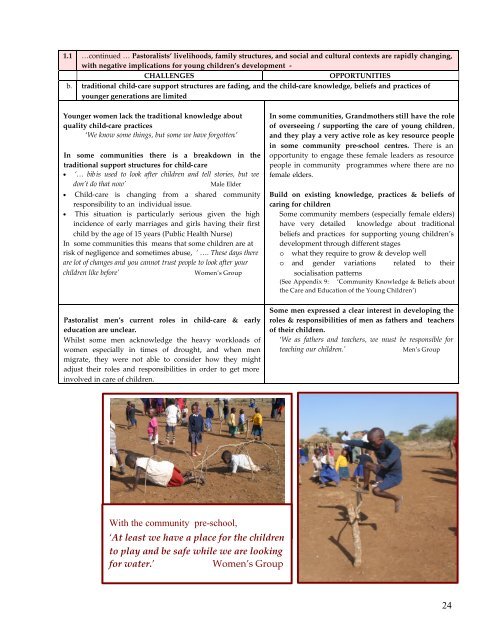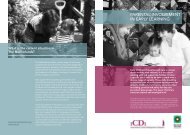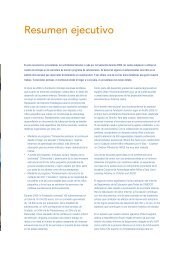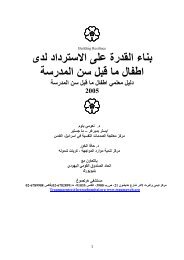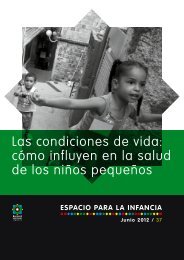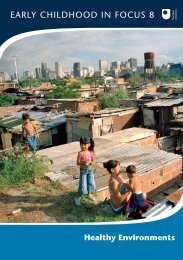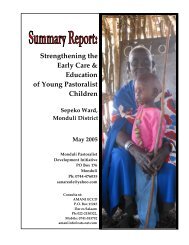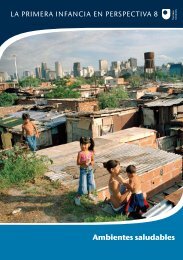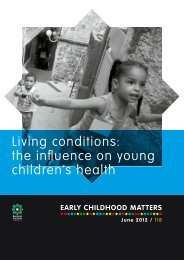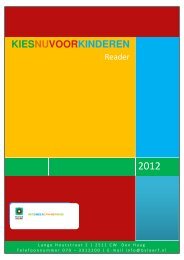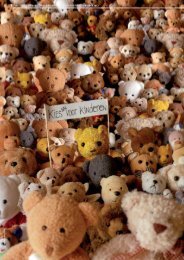Report - Bernard van Leer Foundation
Report - Bernard van Leer Foundation
Report - Bernard van Leer Foundation
Create successful ePaper yourself
Turn your PDF publications into a flip-book with our unique Google optimized e-Paper software.
1.1 …continued … Pastoralists’ livelihoods, family structures, and social and cultural contexts are rapidly changing,with negative implications for young children’s development -CHALLENGESOPPORTUNITIESb. traditional child-care support structures are fading, and the child-care knowledge, beliefs and practices ofyounger generations are limitedYounger women lack the traditional knowledge aboutquality child-care practices‘We know some things, but some we have forgotten.’In some communities there is a breakdown in thetraditional support structures for child-care• ‘… bibis used to look after children and tell stories, but wedon’t do that now’Male Elder• Child-care is changing from a shared communityresponsibility to an individual issue.• This situation is particularly serious given the highincidence of early marriages and girls having their firstchild by the age of 15 years (Public Health Nurse)In some communities this means that some children are atrisk of negligence and sometimes abuse, ‘ …. These days thereare lot of changes and you cannot trust people to look after yourchildren like before’Women’s GroupPastoralist men’s current roles in child-care & earlyeducation are unclear.Whilst some men acknowledge the heavy workloads ofwomen especially in times of drought, and when menmigrate, they were not able to consider how they mightadjust their roles and responsibilities in order to get moreinvolved in care of children.In some communities, Grandmothers still have the roleof overseeing / supporting the care of young children,and they play a very active role as key resource peoplein some community pre-school centres. There is anopportunity to engage these female leaders as resourcepeople in community programmes where there are nofemale elders.Build on existing knowledge, practices & beliefs ofcaring for childrenSome community members (especially female elders)have very detailed knowledge about traditionalbeliefs and practices for supporting young children’sdevelopment through different stageso what they require to grow & develop wello and gender variations related to theirsocialisation patterns(See Appendix 9: ‘Community Knowledge & Beliefs aboutthe Care and Education of the Young Children’)Some men expressed a clear interest in developing theroles & responsibilities of men as fathers and teachersof their children.‘We as fathers and teachers, we must be responsible forteaching our children.’Men’s GroupWith the community pre-school,‘At least we have a place for the childrento play and be safe while we are lookingfor water.’Women’s Group24


